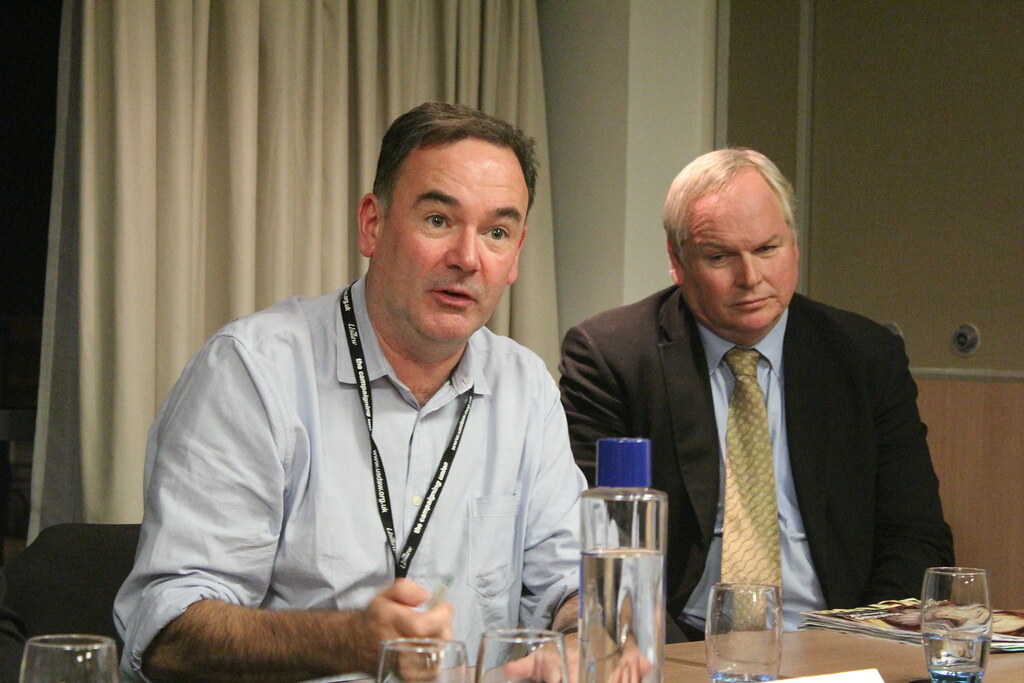The shock result of Sharon Graham winning the General Secretary position of Unite, Britain’s biggest trade union, had not yet settled when Graham already began charting a target that was both audacious and ultimately necessary – Amazon.
Graham’s largely unexpected victory, signalled a shift in direction for the union, with most now expecting Unite to embrace a calmer yet more distant relationship with the Labour Party. Graham was less focused on the party’s internal politics and more preoccupied with improving workplace conditions for workers. A top priority of the new leader is going after Amazon to improve the working conditions of their warehouse employees.
Amazon is arguably the most influential corporation on the planet and represents a brutal depiction of wealth inequality. Whilst Jeff Bezos was charting a dream into space, his warehouse employees work in brutal conditions earning meagre pay. This is well documented by various people, including US Senator Bernie Sanders, who has spearheaded a campaign to improve the rights and conditions for Amazon warehouse workers.
Confronting Amazon is a challenging task, but Graham set about the right way by promising a multinational effort coordinated between unions in Britain, Germany and the US to “pincer” Amazon and prevent it from intimidating its employees out of unionising.
Amazon’s behaviour towards its employees who seek to unionise remains chilling yet, mostly, unknown. An example of this is how it smeared a fired warehouse organiser in the US with a memo that described him as “not articulate and not smart”. A strategy birthed in a meeting attended by Bezos, designed to cultivate ideas to discourage unionising.
Other examples include forcing workers to attend anti-union meetings and providing disinformation on unions, for example, in Alabama workers were warned they’d pay mandatory union dues (Alabama is a “right-to-work” state that bars mandatory dues). This workplace intimidation is easy for Amazon due to the insecure nature of work alongside its surveillance of employees.
Therefore, it is long overdue that British unions are preparing to fight Amazon every step of the way on this. Graham spoke about the willingness to fight for years on this issue to coerce Amazon into signing a “neutrality agreement” which would respect the principle of collective organising within workplaces. Most critically, Graham also recognised that the US and Germany were pivotal because of the nature of Amazon’s markets and e-commerce.
Capital today is borderless; it requires unions to think outside the box. Confronting the behaviour of unchallenged capital, be it in securing better rights for workers or tackling tax avoidance, is always met with the riposte that companies can relocate effortlessly. While true, corporations such as Amazon and McDonald’s are borderless in who they trample, it does raise two points. The first is that, if one takes the behaviour of corporations in wishing maximum profits through low taxes and labour costs as an assumption of how hungrily competitive and, frankly, greedy they are, then why would these companies want to relocate? A hit in the profit margins of paying higher taxes and wages to their workers is still a better alternative than no longer doing business in a market as attractive as Britain’s.
The second point is if businesses can freely move then it makes the willingness of unions to organise collectively pivotal. If they assemble in the most influential markets while pressuring their respective governments, it will make it significantly more difficult for Amazon to ignore the issue of workplace unionising and intimidate those who try it.
Amazon will, doubtlessly, try to lobby the respective governments in return but with more and more stories of Amazon’s warehouse conditions spilling into mainstream awareness, it will be harder for them to ignore the calls for unionisation.
Unionisation is also a much more effective path to improving worker conditions than any form of boycott. Shifting the emphasis onto what consumers can do rather than securing means for workers to collectively organise to protect their dignity is a confusion of priorities that hinges on far-fetched ambitions.
A boycott will never achieve these goals, not today, not tomorrow, and there’s little to be gained in pursuing a battle on that front. Amazon should not be the only one. Today in post-Brexit Britain, there are companies such as McDonald’s that are complaining about labour shortages. What they are essentially bemoaning, is the lack of exploitable labour. Undercutting local wages by hiring EU workers at cheaper rates was more common than the prevailing liberal consensus would have had you believe. These shortages show the failure of European trade unions to build borderless employment solidarity to prevent the undercutting of local wages.
But unions in the EU are not the only ones that have yet to embrace a more international approach. America is a prime example, where there are routinely labour disputes with McDonald’s and yet, to the detriment of their workers, unions have not seriously explored ways to combat their common enemy collectively.
Of course, you need a degree of realism regarding what methods could be utilised. In the past, some have theorised the possibility of solidarity strikes, where protests in one country are automatically replicated elsewhere to prevent the common capitalist threat of relocating. This would be in effect, about taking what is known as “solidarity action” and applying it outside borders. Usually, this follows where a strike carried out by workers of one organisation is supported by those in a completely different one. However, this would be limited to workers of one corporation, such as Amazon or McDonald, but applied across borders. If an Amazon warehouse were to go on strike in Germany, this would be supported by those in the UK.
A recent example was the strike against E-Food in Greece. Workers went on strike over plans to make all workers ‘freelance’ severely cutting their rights at work but this could have been supported by strikes across Europe against their multinational parent company Delivery Hero.
This is, effectively, the internationalisation of the phrase “don’t cross the picket line” and severely limit the threat of companies saying they will simply relocate.
Achieving this, whilst not impossible, would still be difficult, as convincing people to strike for their benefit is tricky enough. Trade unions can bring up connotations of solidarity and sacrifice, but they are, first and foremost, about the self-interests of workers. Those who are part of unions tend to enjoy greater benefits, which is exactly why companies like Amazon are afraid of them but it is up to unions to organise effective methods to fight the new global giants and educate their members accordingly.
Sharon Graham is right in her assertion that time is not an issue. Amazon is here to stay, but the trade unions have over 100 years of history behind them.





